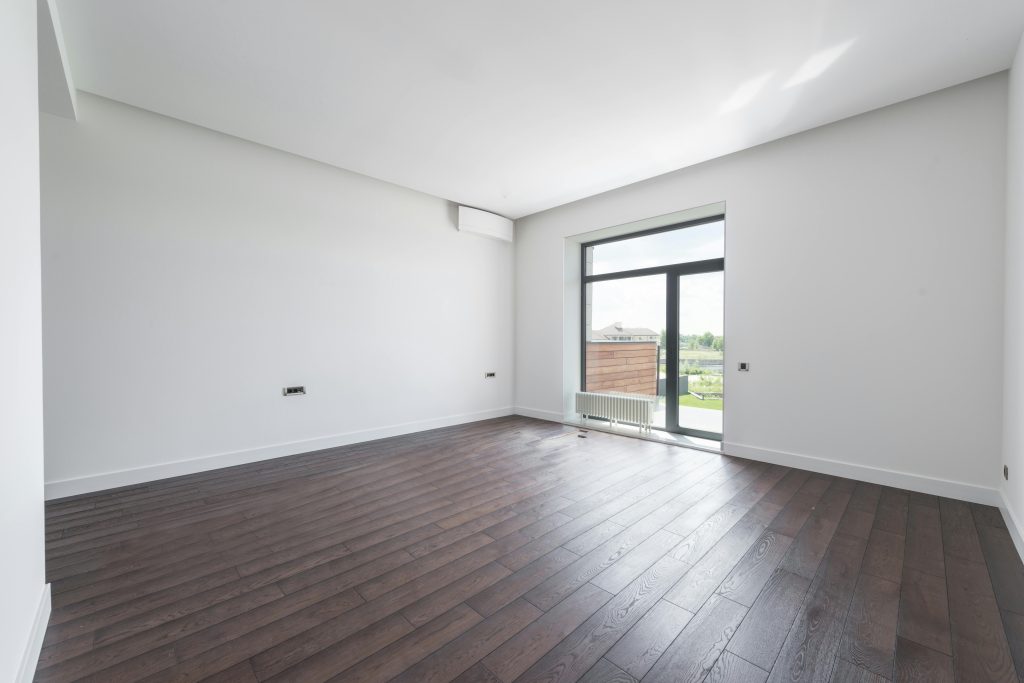If you’re buying a house in the UK, property searches are one of those necessary steps that can feel frustratingly opaque. How long will they take? Why do some areas take weeks while others take months? And is there anything you can do to speed things up?
Having been involved in thousands of property transactions over the past two decades, I’ve seen first-hand how search delays can derail deals, break chains, and cause enormous stress for buyers and sellers alike. This guide draws on that experience to give you a realistic picture of what to expect and practical strategies to keep your purchase on track.
What Are Property Searches?
Property searches are formal investigations carried out during the conveyancing process. Their purpose is to uncover any legal, environmental, or regulatory issues that could affect the property you’re buying—things that might not be obvious from a viewing or even a survey.
According to the Law Society, searches help identify issues such as planned developments, rights of way, environmental contamination, flood risk, and whether the property has proper planning permissions. They protect you from buying a property with hidden problems that could cost thousands to resolve—or make the property difficult to sell in future.
Your solicitor or licensed conveyancer handles the searches on your behalf. You’ll pay for them as part of your conveyancing fees, typically ranging from £250 to £450 depending on the property location and which searches are required.
The Main Types of Property Searches
There are four core searches that most mortgage lenders require. Understanding what each one covers helps you appreciate why they take the time they do.
Local Authority Search
This is typically the most comprehensive—and often the slowest—search. It covers planning history, building control records, highway matters, conservation area status, tree preservation orders, and any planned infrastructure projects that might affect the property.
What it reveals:
- Whether extensions or alterations have proper planning permission and building control sign-off
- Roads that might be adopted by the council (potentially affecting access or future charges)
- Planned developments nearby—new housing estates, roads, or commercial buildings
- Conservation restrictions that could limit what you can do with the property
- Any financial charges registered against the property by the local authority
Environmental Search
This search examines potential environmental risks that could affect the property’s safety, value, or insurability:
- Flood risk from rivers, the sea, or surface water
- Ground stability issues including subsidence, mining, and landslip risk
- Contaminated land from previous industrial use
- Proximity to landfill sites or sources of potential pollution
Environmental search providers compile data from the Environment Agency, British Geological Survey, and other official sources. The results can significantly affect insurance premiums or even insurability.
Water and Drainage Search
This confirms the property’s connection to mains water and sewerage, which is more important than many buyers realise:
- Whether the property is connected to public water supply and sewerage
- Location of public sewers and drains (critical if you plan to extend)
- Whether a sewer runs under or near the property
- Any build-over agreements that might be needed
Land Registry Search
This verifies the seller’s legal ownership by checking the title register and title plan held by HM Land Registry. It confirms the seller has the right to sell and reveals any registered charges, restrictions, or third-party rights affecting the property.
How Long Do Searches Actually Take?
Here’s where experience tells a different story from the official estimates you might read elsewhere. The timescales vary enormously depending on the type of search and, crucially, which local authority area the property is in.
| Search Type | Typical Timeframe | Key Variable |
| Local Authority Search | 3 to 8+ weeks | Council efficiency |
| Environmental Search | 24 to 48 hours | Search provider |
| Water and Drainage | 3 to 10 working days | Water company |
| Land Registry | Same day to 3 days | Usually fast |
The Local Authority Variable: Why Location Matters So Much
Here’s something that consistently surprises first-time buyers: the speed of local authority searches varies wildly across the UK. I’ve seen transactions in some areas complete searches in under a week, while others have taken three months or more.
The reasons for this variation include council resources and staffing levels, the volume of property transactions in the area, whether the council has digitised its records, and the complexity of local planning history. Some councils have invested heavily in digital systems and return searches within days. Others still rely on manual processes that create significant backlogs.
To check current turnaround times for specific councils, Property Searches Direct maintains updated data on local authority search times across the UK. This is worth checking before you make an offer, as it can help you set realistic expectations for your transaction timeline.
From our experience, we’ve noticed that some London boroughs, certain councils in the North West, and a handful of rural authorities consistently take longer than average. Meanwhile, some councils in Yorkshire, parts of the South East, and several Welsh authorities tend to be notably faster.
What We’ve Learned from Thousands of Transactions
Over twenty years of buying properties across the UK, we’ve developed a practical understanding of how searches affect transaction timelines. Here are the patterns we consistently see:
Chains amplify delays. If you’re in a chain of four properties and one of them is in a slow council area, everyone waits. We’ve seen chains collapse because a single local authority search took eight weeks while mortgage offers on other properties in the chain expired. Research from the
HomeOwners Alliance suggests that around 30% of property transactions fall through before completion, with delays being a significant contributing factor.
Personal search agents can help—sometimes. Rather than waiting for the council to process a search, your conveyancer can use a personal search company that physically visits the council offices to gather information. This typically costs more (perhaps £50-100 extra) but can cut weeks off the timeline. However, some mortgage lenders don’t accept personal searches, so check with your lender first.
Start searches immediately. We’ve seen buyers lose properties because they waited until after the survey to instruct searches. In most cases, it makes sense to begin searches as soon as your offer is accepted. Yes, you risk losing the search fees if the transaction falls through, but the cost is modest compared to the delay of starting late.
Communication matters. A good conveyancer will chase outstanding searches proactively. If you haven’t heard anything for two weeks, ask your solicitor for an update and request they follow up with the relevant authority.
Practical Tips to Minimise Search Delays
- Check council turnaround times before making an offer. If you’re choosing between two properties and one is in an area with notoriously slow searches, factor that into your decision.
- Instruct a conveyancer as soon as your offer is accepted. Don’t wait for the survey results. The sooner searches are ordered, the sooner you’ll have results.
- Ask your conveyancer about personal search options. If your lender accepts them, this can significantly speed up local authority searches in slow areas.
- Keep your mortgage offer timeline in mind. Most mortgage offers are valid for three to six months. If searches are dragging, speak to your lender about extending the offer before it expires.
- Stay in regular contact with your conveyancer. A weekly check-in helps ensure nothing falls through the cracks and keeps gentle pressure on all parties.
- Be realistic about timelines when planning your move. Build in buffer time. If your conveyancer estimates eight weeks to exchange, plan for ten.
Are Property Searches Mandatory?
Technically, no. There’s no legal requirement to conduct property searches when buying a house. However, in practice, they’re almost always necessary for two reasons.
First, mortgage lenders require them. If you’re borrowing money to buy the property, your lender will insist on searches as a condition of the loan. They need to know the property they’re lending against doesn’t have hidden issues that could affect its value.
Second, searches protect you. Buying without searches means accepting unknown risks. You might discover after completion that a major road is planned through your garden, or that the extension you loved doesn’t have planning permission, or that the property sits on contaminated land. These are expensive problems to inherit.
The only scenario where searches are commonly skipped is when a cash buyer makes an informed decision to accept the risk in exchange for a faster transaction. Cash buyers aren’t bound by lender requirements, so they can choose to proceed without searches if they wish. This is one reason cash purchases can complete so much faster than mortgaged purchases.
What If Searches Reveal Problems?
Searches sometimes uncover issues that need addressing. This doesn’t necessarily mean you should walk away—it depends on the nature and severity of the problem.
Minor issues (like a missing building control sign-off for old works) can often be resolved through indemnity insurance, which the seller typically provides.
Moderate issues (like elevated flood risk) might not prevent the purchase but could affect your insurance costs. Get quotes before committing.
Serious issues (like planned compulsory purchase or severe contamination) may justify renegotiating the price or withdrawing from the purchase entirely.
Your conveyancer will advise you on the implications of any issues uncovered and help you decide how to proceed.
Summary
Property searches are a necessary part of buying a house, providing crucial protection against hidden problems. While environmental, water, and Land Registry searches typically complete within days, local authority searches can take anywhere from one week to several months depending on where you’re buying.
The key to managing search delays is setting realistic expectations, instructing your conveyancer early, and staying in regular communication throughout the process. Check current turnaround times for your local authority, consider personal search options if appropriate, and build buffer time into your moving plans.
How we can help
This section contains information about our services.
Property Rescue is a cash house-buying company that has been operating since 2004. As cash buyers, we can purchase properties without the need for searches—which means we can often complete purchases within two weeks rather than the typical three to six months.
This can be particularly useful if you’re facing time pressure—perhaps due to a broken chain, a need to relocate quickly, or financial circumstances that require a fast sale. We typically offer around 80% of market value, which reflects the speed, certainty, and convenience of a guaranteed cash sale with no chains.
We’re members of the National Association of Property Buyers (NAPB) and The Property Ombudsman, and we’re regulated by the Financial Conduct Authority for sale and rent back services. You can read independent reviews of our service on Trustpilot.
If you’d like to explore whether a quick cash sale might work for your situation, you can request a free, no-obligation quote here
Sources and Further Reading
- Law Society – Property Searches Guidance
- HM Land Registry – Official Land Registration Services
- Environment Agency – Flood Risk Information
- HomeOwners Alliance – Why House Sales Fall Through
- Property Searches Direct – Local Authority Turnaround Times
- National Association of Property Buyers – Code of Practice
- The Property Ombudsman – Consumer Protection Standards









